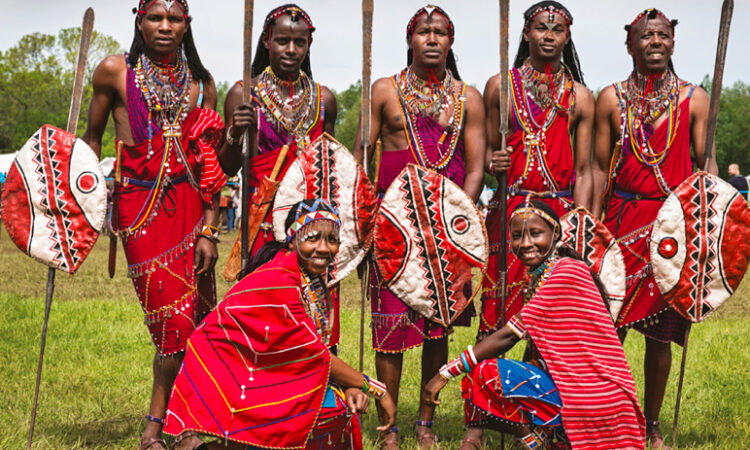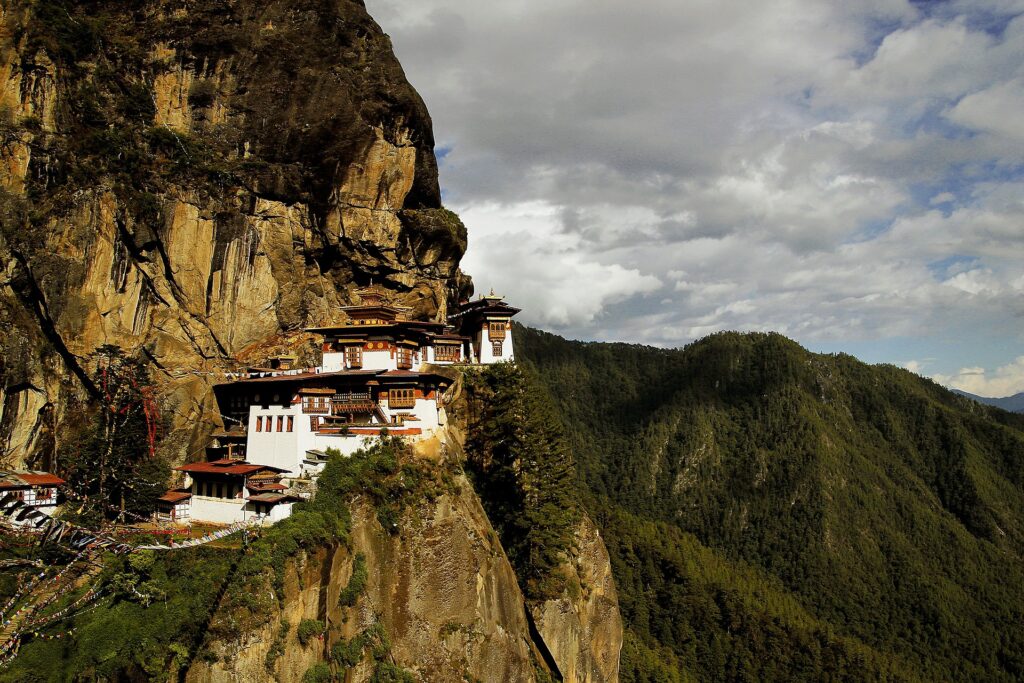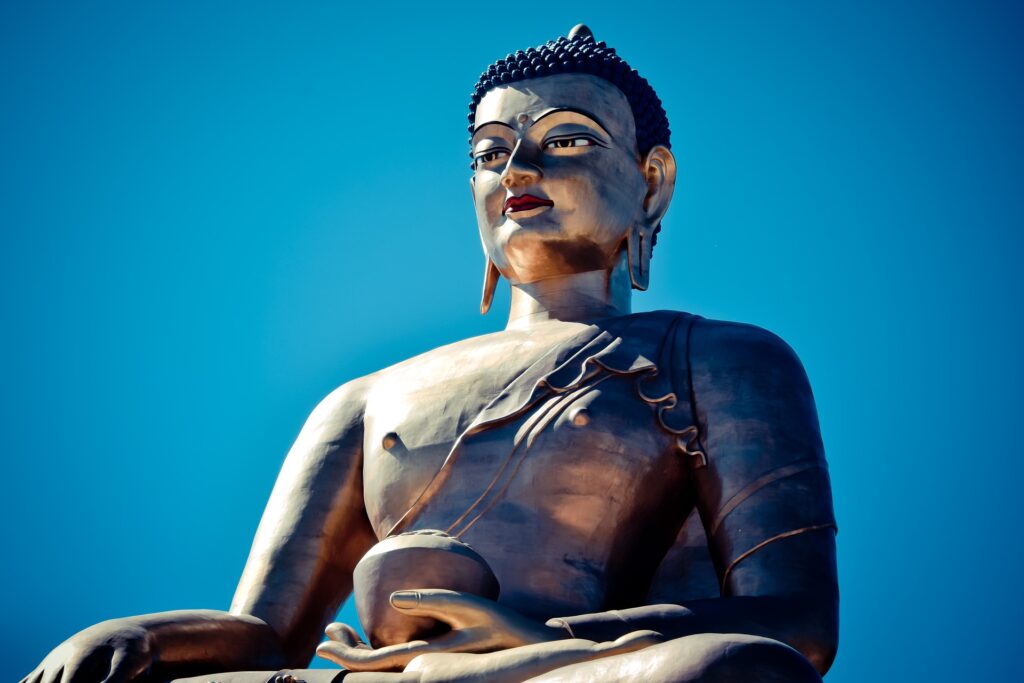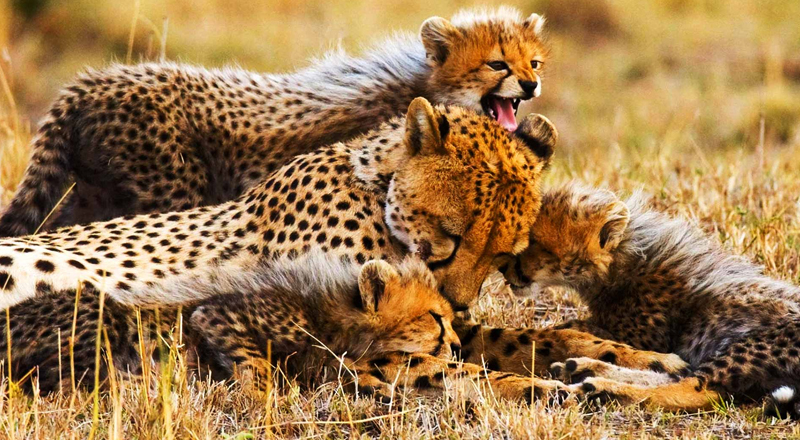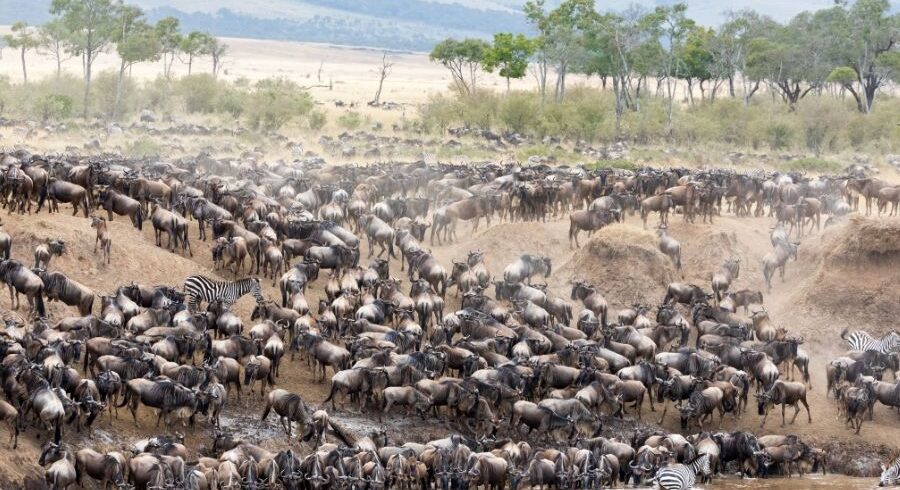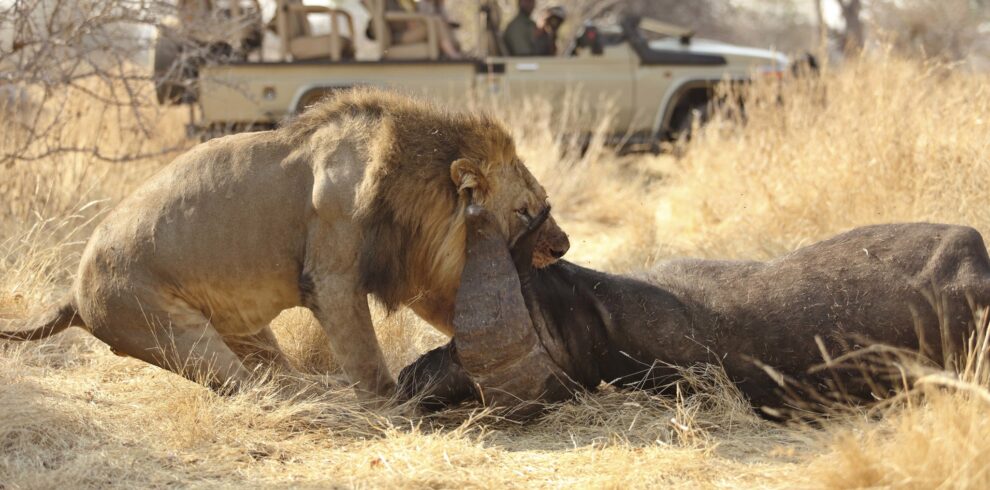Set off on an extraordinary and eventful journey through Tanzania, filled with adventure waiting for you in the heart of East Africa. Meet the majestic wildlife in Arusha National Park and the great Serengeti, be amazed by the breathtaking landscapes of the renowned Ngorongoro Crater and explore bustling markets and local villages where you can engage with the rich cultures of indigenous tribes. This 11-day adventure promises an unforgettable exploration of Tanzania’s diverse ecosystems, vibrant cultures, and iconic landmarks.
OVERVIEW
Wildlife Wonders and Iconic Landscapes
Prepare for some unforgettable wildlife encounters as you explore the diverse ecosystems of Arusha National Park and Tarangire, where sightings of majestic elephants, graceful giraffes, and beautiful leopards await. Learn the hunting techniques and unique way of life Hadzabe tribe at Lake Eyasi and experience ancient African culture firsthand. Of course, the journey will lead you onto the legendary Serengeti, where the endless plains stretch as far as the eye can see with a good chance to see the Great Migration unfold before you. Spend two days surrounded by the iconic African savanna, observing the circle of life play out amidst vast herds of wildlife.
Natural and Cultural Treasures
Continue to the Ngorongoro Crater, a UNESCO World Heritage Site teeming with diverse flora and fauna. Marvel at the breathtaking scenery and rare species such as the endangered black rhino, all against the backdrop of one of Africa’s most iconic landscapes. After that, more cultural experiences awaits with a visit to the MtowaMbu village. Stroll through bustling markets, sample local delicacies, and engage with friendly locals from diverse tribal backgrounds.
HIGHLIGHTS
- Amazing wildlife in Arusha National Park and the Serengeti
- Enriching cultural experiences with indigenous tribes
- Breathtaking landscapes of Ngorongoro Crater and Lake Eyasi
- Explore bustling markets in Moshi and vibrant villages
Arrive at Kilimanjaro Airport, Tanzania. After clearing customs, look for your driver. He will be waiting for you, holding a sign with your name on it. Your driver will transport you to the Hotel Moshi.
Overnight at the Hotel (with breakfast) or Similar
The morning drive to Arusha National Park for game viewing. The park is dominated by Mount Meru, Africa’s fifth highest mountain, 4,565m. There is a good range of animal species represented; you can expect to see hippos, giraffes, zebras, warthogs, waterbucks, and bushbucks, although more interesting sights such as reedbucks, leopards and hyenas are much more occasional. They are also quite alkaline and therefore provide a year-round breeding area for flamingoes.
Overnight at Highview Hotel (with lunch, dinner & breakfast) or Similar
This morning After breakfast we will collect you from Highview Hotel and drive along a scenic route to Tarangire National Parks, The beauty of the park will offer you an awesome game viewing you have never seen and during the dry season, it draws hundreds of animals to the park, making for a wildlife and bird viewing spectacular. The landscape is varied, with grassy savannah plains, swamps, hills, and spectacular baobabs. Also during the dry season Elephants abound, Families of the ancient trunks of Baobao trees strip acacia bark from the thorn trees, The Breathtaking view of the Masai steppe and mountain in the south makes a stopover at Tarangire a memorable experience, and your herds and a group of animals like Elephant, followed by Zebras, Buffalo, and oryxes who venture from Masai to the Tarangire in search of water, There are also few Lions prowling around looking for unexpecting preys around the jungle, There are more breeding species of birds found in Tarangire national park than anywhere else on the planet. Also, Tarangire is traversed by the Tarangire River which never dries up being the only source of water during the dry season. Late afternoon drive back.
Overnight at Highview Hotel (with lunch, dinner & breakfast) or Similar
Enjoy the day in the Karatu area, nestled between the Ngorongoro and Lake Manyara. Karatu is a colorful bustling town and a fun place to visit to buy souvenirs. After breakfast enjoy a hike to the Ngorongoro Forest. On this two-hour hike through the forested slopes of the Ngorongoro Conservation Area, you will discover a magnificent waterfall and incredible “elephant caves” created by elephants digging up the earth to ingest the vitamin-rich soil. You may see buffalo, bushbuck, waterbuck and baboons, also attracted by the soil. During, the afternoon visits the Iraqw cultural center. The areas surrounding Karatu town is Iraqw homeland, and you can witness their locally developed intensive cultivation techniques. Traditionally in conflict with the Maasai, Iraqw homesteads included underground tunnels – aasimo — in which to hide. You’ll be able to see these elaborate structures during a visit. During this excursion you can learn more about the Iraqw culture by interacting at the local markets and learn how they run their daily lives.
Overnight at Highview Hotel (with lunch, dinner & camp breakfast) or Similar
Drive to Lake Eyasi, a mildly alkaline lake about 55km long. If seeing hundreds of species of birds excites you, Lake Eyasi is a perfect destination for you to see flamingos, pelicans, spoonbills, weavers, spurfowls, storks, barbets, egrets and more. The visit includes meeting the Hadzabe people and spending the day observing their ways. The Hadzabe is an indigenous tribe known as the hunter gatherer Bushmen. Visit their homesteads and learn more about their lifestyle. Hunting in groups with bows and arrows, this tribe can survive with what the environment provides. The Hadzabe bushmen treat diseases with their own medicines. The Hadzabe speak a unique click language. Apart from this cultural activity the area offers superb hiking, bird watching and beautiful scenery.
Overnight at Highview Hotel (with lunch, dinner & breakfast) or Similar
Head out after breakfast for the drive to Serengeti National Park. The word “Serengeti” is derived from the Maasai language, meaning “endless plain.” As you make your way to the Serengeti you can opt to visit as Masaai Village, a perfect place to explore Maasai culture and even participate in some tribal activities. Or visit Olduvai Gorge, known as the Cradle of Humanity; the Museum is a testament to the long journey that humanity has made from its humble roots in East Africa to its current state as the dominant species on earth. Enjoy a game drive on your way to your camp.
Overnight at Serengeti Wild/Wildebeest Camp (with lunch, dinner & breakfast) or Similar
Relax with two full days in the Serengeti with game drives – known for its beauty and home to the Great Wildebeest Migration. The huge herds of plains game such as wildebeest, zebra and antelope dominate the park while the attendant predators such as lions and cheetah are to be found amongst the many kopjes scattered across the plain. Its landscape varies from open grass plains in the south, savanna with scattered acacia trees in the center, hilly, wooded grassland in the north, to extensive woodland and black clay plains to the west.
Overnight at Serengeti Wild/Wildebeest Camp (with lunch, dinner & breakfast) or Similar
Enjoy a morning game drive on your way to Ngorongoro Crater. Descend into the Ngorongoro Crater floor for game driving and exploration. The crater is 600m deep, 16km across and 265 sq km in area. Enjoy the spectacular scenery and game viewing, in what has been described as the eighth wonder of the world. Many, of Tanzania’s last remaining black rhino can be seen grazing on the open grassland of the crater floor, surrounded by some of the 20,000 large animals that occupy the crater, including lion, cheetah, eland, zebra, and gazelle. Flamingo, among other bird species, can often be seen feeding at MakatSoda Lake as well. Afternoon dive to your lodge for your overnight stay.
Overnight at Highview Hotel (with lunch, dinner & breakfast) or Similar
The Mto Wa Mbu cultural tour offers a unique and authentic experience as you explore the vibrant village located at the entryway to the Ngorongoro Conservation Area. During your visit, you will encounter a remarkable mix of cultures and witness the daily life of the local tribes. Expect to stroll through the bustling Mto Wa Mbu market, a melting pot of various ethnicities, where you can browse an array of handcrafted Maasai beadwork, colorful fabrics, and local artwork. As you venture further into the village, you will have the opportunity to interact with the welcoming locals from different tribes like the Chagga, Iraq, and Sukuma. Engage in traditional activities cultural village walk, rice and banana farm, local craftsman, banana beer brewing, and learn about their unique farming techniques, which have been passed down through generations.
If you will, you can try the local meals/food and have a local lunch at a place that is trusted by the guide and enjoy the delicacy of the locals’ meals. One of the highlights of the tour is meeting the Maasai people, renowned for their distinctive attire and age-old customs. You’ll witness their captivating traditional dances and perhaps get a chance to visit a traditional Maasai boma (homestead) to understand their nomadic way of life and ancient herding practices.
Throughout the tour, your knowledgeable guide will provide fascinating insights into the cultural significance of various practices and rituals. You can also do cycling if you have bicycles with you. Then later in the day transfer back to Moshi.
Overnight at the Hotel (with breakfast) or Similar
Enjoy a morning at leisure before your transfer to Kilimanjaro airport for your flight home.
Safari Cost Includes
- Transfers
- • All transfers detailed in the itinerary
- Accommodation & Meals
- • Hotels and lodges as specified in the itinerary
- • Meals as outlined in the itinerary
- • Provision of bottled water, soft drinks, hot coffee, and tea during the safari in the jeep
- Guiding & Game-Driving
- • A certified and experienced English-speaking safari guide
- • Comfortable 4x4 Land Cruisers equipped with pop-up roofs, refrigerators, Wi-Fi, and power outlets
- • National park fees inclusive for the entire duration of the tour (including park entry and concession fees)
- • Medical kit provided
Safari cost Exclude
- • Airfare;
- • Visa fees;
- • Travel insurance;
- • Gratuities for your safari guide ($30-50 per day per vehicle).
- Please note:
- • Our tours typically include shared accommodations in twin/double rooms, unless otherwise requested and agreed upon. A single supplement is available upon request. Please refer to the itinerary for details regarding your accommodation arrangements.
- • Accommodations in Moshi and Arusha generally include breakfast only, unless otherwise requested and agreed upon. Please consult the itinerary for meal plans for each night.
- • Most safari lodges do not include tea, coffee, soft drinks, or alcoholic beverages to prevent overcharging for items you may not require. You will have the opportunity to order and pay for drinks at the hotels' restaurants.
- • Tented lodges are the predominant type of accommodation in the savannah. Many operate on solar energy, which may result in bucket showers, limited Wi-Fi, and the absence of hair dryers, all aimed at minimizing environmental impact. We encourage you to conduct some preliminary research on the accommodations listed in your itinerary to ensure that the safari aligns with your travel preferences. showers, limited wi-fi and no hair dryers, all in an effort to reduce environmental impact. We encourage you to do some basic research on the accommodations in your program to ensure the safari matches your travel style
A visa is required when traveling to Tanzania. Currently, this can be obtained online, on arrival at airports and border crossings, and is valid for 90 days. A valid passport is mandatory. Your passport must be valid for at least 6 months beyond the date you expect to leave Tanzania.
We carefully select the accommodation on safari so that you are comfortable and relaxed and can experience a one-of-a-kind atmosphere during your safari. All rooms/tents during your safari are fitted with mosquito nets or are insect-proofed to protect you against bites. You are also advised to use insect repellent to further protect yourself, especially outdoors in the evenings.
Tanzania is generally considered a safe destination for safari-goers. Visitors should follow the safety guidelines provided and take necessary precautions, such as avoiding walking alone at night or leaving valuables unattended.
The wildebeest migration takes place in Tanzania typically between the months of November to August, although the timing can vary slightly depending on the weather patterns each year. The migration is a continuous movement of around 1.5 million wildebeest and large numbers of zebras and gazelles across the Serengeti plains in Tanzania in search of fresh grazing land and water. In November and December, the herds of wildebeest can be found in the northern Serengeti near the Kenyan border, where they start calving. As the rains stop and the dry season sets in, the herds begin to move south in search of water and fresh grazing. By April and May, the herds are usually in the central Serengeti. By June, the wildebeest and other herbivores gather at the Grumeti River, where they must cross to continue their journey south. By July, the herds are usually in the eastern Serengeti; by August, they move into the northern region of the Ngorongoro Conservation Area.
Drinking tap water in Tanzania is generally unsafe, as it may contain harmful bacteria and parasites that can cause illnesses such as typhoid, cholera, and hepatitis A. Drinking only bottled or filtered water is important to avoid getting sick. You can buy bottled water at most shops, hotels, and restaurants in Tanzania. When traveling in Tanzania, it’s also important to avoid drinking water from sources such as lakes, rivers, and streams, which may also contain harmful bacteria and parasites. Instead, use bottled or filtered water to brush your teeth and rinse your mouth after brushing. Additionally, avoiding ice in drinks and peeling fruits and vegetables before eating them is a good idea to reduce the risk of ingesting contaminated water.
Tanzania is home to many national parks, but the most popular ones for safaris are Serengeti National Park, Ngorongoro Crater, Tarangire National Park, and Lake Manyara National Park.
Tanzania is home to a wide variety of wildlife, including lions, elephants, giraffes, zebras, wildebeest, hippos, buffalo, leopards, cheetahs, and many species of birds.
The best time to go on a Tanzania safari depends on your preferences. The dry season from June to October is the best time for game viewing, but it can be crowded and more expensive. The wet season from November to May offers lush landscapes, fewer crowds, and lower prices, but some parks may be closed due to flooding.
Our safaris are in 4×4 vehicles, which are ideal for navigating the rugged terrain of the national parks. Some safaris may also include flights to remote areas or walking safaris.
It’s important to dress in layers and pack versatile, easy-to-wash, and dry clothing. Don’t forget also to bring sunscreen, insect repellent, and a small backpack to carry your essentials while on safari. Choose comfortable, practical, and appropriate clothing for the weather conditions. Lightweight, breathable clothing such as cotton or linen shirts, pants, and shorts. Long-sleeved shirts and pants can also help protect you from the sun, insects, and thorny bushes. Neutral-colored clothing such as khaki, beige, or olive green. Avoid bright colors or patterns, as they can scare off wildlife or attract insects. Closed-toe shoes such as sneakers or hiking boots for walking safaris or nature walks. Sandals or flip-flops can be worn around camp but may not provide enough protection for outdoor activities. A hat or cap to protect your head and face from the sun. Sunglasses protect your eyes from the bright sunlight. A light jacket or sweater for cooler mornings and evenings. Swimwear if you plan to visit a lodge or camp with a swimming pool. A rain jacket or poncho if you’re traveling during the rainy season.
Tipping is highly appreciated at the end of safari/mountain climb. The size of tips will vary depending on the length and complexity of the trip, the number of staff on the trip and the number of clients on the trip. Generally, groups like to meet together before the end of the trek to discuss how much they would like to tip each staff member based on their individual trek experience. You should prepare an envelope after your trek for your tip money at the Hotel. You can use US dollars, Euros, TZ Shillings or a combination of these. Please ask the Safari/Climbing coordinator at the Hotel for advice.
Mountain Climbs: $25-50 USD per Day per Climber to be shared between guides, chefs and porters.
Safaris: Driver/Guide: $35-50 USD per Day per Car. If it is a camping safari there will be a tip for the cook $10 USD per Day.
THESE ARE JUST GUIDELINES AND TIPS CAN BE GIVEN TO SAFARI STAFF/MOUNTAIN CREW ACCORDING TO SERVICES PROVIDED.

